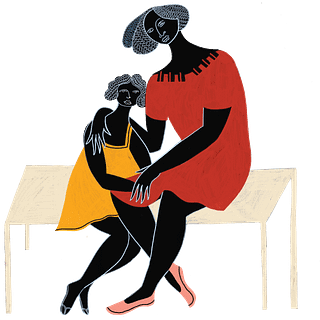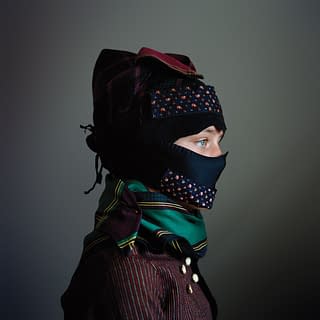
For the Ecstasy issue, Kate Zambreno wrote an experimental essay considering what might happen if she sublet her Brooklyn apartment to her Swedish translator, Helena Fagertun. This is Helena’s response.
I’m sitting on the sofa with a sleeping cat in my lap as I recall my first encounter with Kate Zambreno. It was sometime around 2011, when I was working on a co-translation of a novel and stumbled across Zambreno’s essay on the author. A few years later I found myself translating her book Heroines, which I had eagerly anticipated. The work was by turns obsessive and elusive, and I kept drifting away from the task at hand; I started collecting and reading each book mentioned, and I became convinced that the translation was going to drive me crazy. I imagined being better at the job if I were someone else, someone in possession of Zambreno’s linguistic precision and ease in switching between more theoretical reflections, gossip from the literary world, and the quotidian. When Kate told me that she was working on a piece about translation called “Sublet,” on what it would be like if, as we say in Swedish, I rented her apartment secondhand, it was as if I finally had a metaphor for translation that, appropriately enough, made me feel at home. It’s less about what is lost in translation, and more about what is still there. I began drafting a translation of her as yet nonexistent piece in my head. The word sublet is simultaneously a noun and a verb, encompassing both the place and how that place is occupied. The English allows for a terseness lacking in its unwieldy Swedish counterpart andrahandsuthyrning.
When I first met Kate, on a January day in 2020, I had already read her novel Drifts, and it was difficult for me to separate the writer from her work. I felt that I had already spent so much time with her. She was wearing a white jumpsuit, and all I could think about was a sentence in which she confesses how carefully she dresses for other women. She apologized for being late, and remembering the animal passages in Drifts, I imagined her stopping to help a dog or cat on the way. Previously, I’d always found it easy to talk about Zambreno’s way of blending the narrative and authorial self—the slippage between the two being what, for me, distinguished her writing. But with Kate right in front of me, I felt that I knew so very much about her and yet could not determine what to actually discuss with her. I listened and tried to answer in my best English, afraid that she would otherwise think it unreasonable that someone who spoke so haltingly could be a translator. But this also limited the possible discussions between us, limited even the thoughts that could be thought. This might have been why I didn’t ask her about language—how she feels about writing in a language as dominant as English while increasingly engaging with writers who wrote in other languages, such as Rilke and Guibert. Instead, we talked about the day-to-day realities of our lives, the economic conditions of working with literature in our respective communities.
I look forward to the summer of 2022, when I’ll meet with Kate again at the same café. I will have devoted the previous months to translating Drifts and will have parts of the text that I want to look at with her. After our coffee, she and her family will leave for the Midwest, and I’ll move into their apartment. In the evening, I will take a seat on the broken chair on the porch, and a tiny cat will sneak across the grass toward me. I will realize how crucial it is that I finish writing the book, in Swedish, right here.
Helena Fagertun is a Swedish writer, editor, and translator. She has translated authors such as Kate Zambreno, Mary MacLane, and Sally Rooney.
Saskia Vogel is a novelist, screenwriter, and Swedish-to-English translator of authors such as Johannes Anyuru, Balsam Karam, and Karolina Ramqvist. Her debut novel, Permission, has been published in five languages. She will be Princeton University’s translator in residence for the fall 2022 semester.


